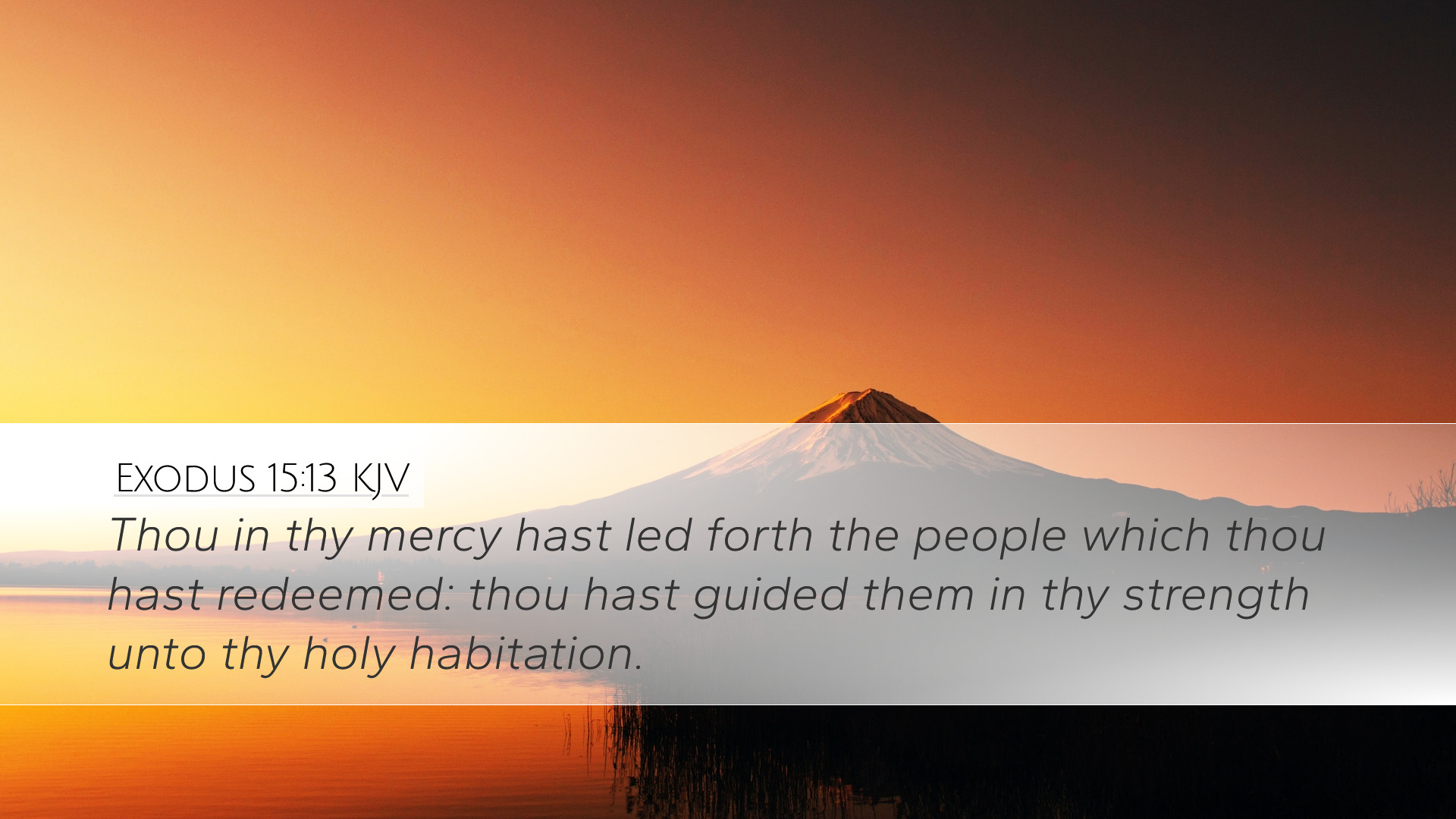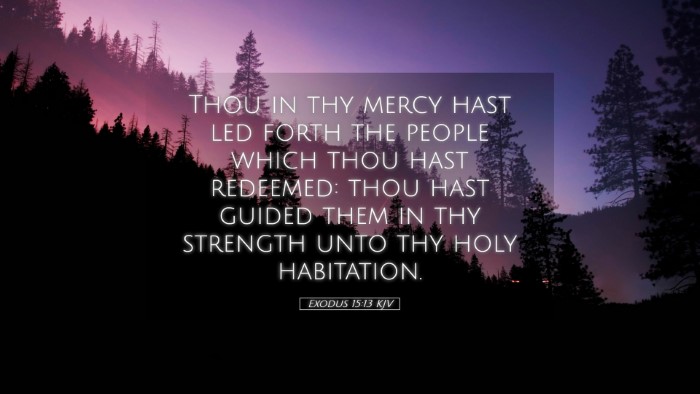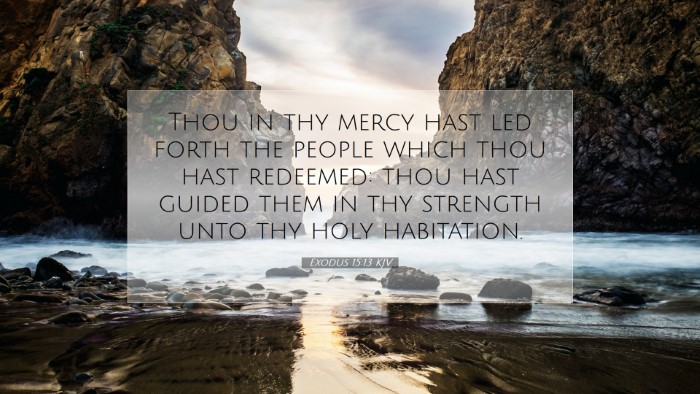Exodus 15:13 - A Commentary
Exodus 15:13 reads: "You in Your mercy have led forth the people whom You have redeemed; You have guided them in Your strength to Your holy habitation." This verse, located within the context of the Song of Moses, serves as a powerful testimony to God's salvific and guiding nature.
Contextual Background
This verse comes after the crossing of the Red Sea, where God delivered the Israelites from Egyptian bondage. The entire chapter is a celebration of this divine intervention and salvation, with Moses and the children of Israel praising God for His mighty acts.
Theological Insights
The verse can be divided into two major themes: God's mercy in redemption and His guidance for His people. Here are some insights from prominent public domain commentaries:
God's Mercy and Redemption
Matthew Henry emphasizes that God’s mercy is the foundation of the Israelites’ redemption. He notes, “It is not for any merit of theirs, but purely out of the riches of His grace that He has brought them out of Egypt.” This highlights the unearned and gracious nature of God's favor towards His people.
Albert Barnes states, “Mercy is the attribute of God which leads Him to act towards His people in kindness and compassion.” This notion reinforces the belief that God's redemptive act is not merely a response to human need but is rooted in His character of love and mercy.
Guidance in Strength
The latter part of the verse, “You have guided them in Your strength to Your holy habitation,” focuses on the guidance of God. Adam Clarke notes that this “strong and powerful guidance” is essential for the journey of the Israelites towards the Promised Land. It assures believers of God's constant presence and support.
Henry mentions that this guidance implies not only physical direction but also spiritual leading, “by Your power you have guided the people through the wilderness toward the land You promised.” This dual theme of guidance reinforces the idea that God is concerned with both our physical and spiritual journeys.
Applications for Pastors and Theologians
This verse serves as a reminder of the importance of recognizing God's active role in the lives of believers. For pastors, it can encourage a focus on the themes of mercy and guidance in their ministry. Here are some applications:
-
Preaching Mercy: Pastors are called to highlight God’s mercy as an essential aspect of His character, emphasizing that redemption is available to all who seek Him.
-
Guiding the Congregation: Just as God guided the Israelites, contemporary leaders must seek God’s guidance in leading their congregations, ensuring that they are directed toward holiness and spiritual maturity.
-
Encouraging Faith in Trials: Like the Israelites faced trials in the wilderness, today’s believers also encounter challenges. This verse reassures them of God’s continual presence and strength.
Reflections for Students and Scholars
For students and scholars, this verse offers rich theological and doctrinal implications:
-
The Nature of God: The exploration of God’s attributes as both merciful and powerful can deepen the understanding of His nature in the context of Old Testament theology.
-
Historical Context: Understanding the historical background of Exodus enhances comprehension of Israel's identity and their covenant relationship with God.
-
Application in Modern Context: Scholars can explore how these themes of mercy and guidance can be applied to contemporary issues of faith and spirituality.
Conclusion
Exodus 15:13 encapsulates key themes of divine mercy, redemption, and guidance. The insights from Matthew Henry, Albert Barnes, and Adam Clarke enrich our understanding of this verse’s multifaceted significance. It speaks not only of God's historical actions but also His ongoing work in the lives of believers today.


